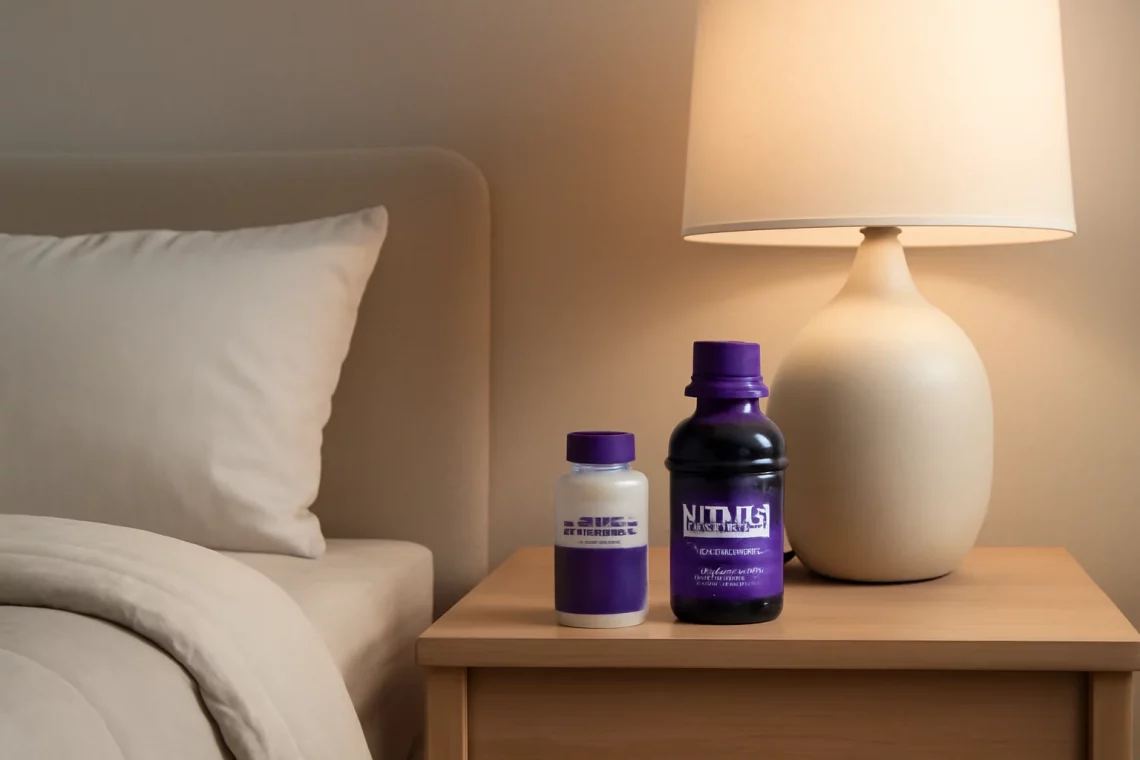
Melatonin vs ZzzQuil: Which Sleep Aid Is Right for You?
Sleep is an essential component of our overall health and well-being, yet many individuals struggle to achieve a good night’s rest. Factors such as stress, anxiety, and lifestyle choices can disrupt the natural sleep cycle, leading to insomnia and other sleep-related issues. In response to this growing concern, various remedies have emerged in the market, with melatonin and ZzzQuil being two of the most popular options.
Melatonin is a hormone that regulates the sleep-wake cycle, produced naturally by the body in response to darkness. It’s often used as a supplement for those experiencing difficulties in falling asleep or adjusting to new time zones. On the other hand, ZzzQuil is an over-the-counter sleep aid that contains diphenhydramine, an antihistamine that can induce drowsiness. With the plethora of choices available, understanding the differences, benefits, and potential side effects of these two sleep aids is crucial in making an informed decision about which one might be right for you.
In this article, we will delve into the characteristics of melatonin and ZzzQuil, exploring their effectiveness, safety, and the scenarios in which each may be most beneficial.
Understanding Melatonin: The Natural Sleep Hormone
Melatonin is a hormone that is primarily produced in the pineal gland of the brain. Its primary function is to regulate the body’s circadian rhythm, signaling to the body when it is time to sleep and when it is time to wake up. Melatonin levels typically rise in the evening, peak during the night, and decline in the early morning. This natural fluctuation helps to facilitate a restful sleep cycle.
For many people, melatonin supplements serve as an effective way to enhance sleep quality and combat insomnia. They can be particularly beneficial for individuals who have difficulty falling asleep due to irregular sleep schedules, such as shift workers or those suffering from jet lag. Studies have shown that melatonin supplementation can help reduce the time it takes to fall asleep and improve overall sleep duration.
One of the key advantages of melatonin is its safety profile. It is generally well-tolerated, with fewer side effects compared to many prescription sleep aids. Common side effects may include dizziness, daytime drowsiness, and, in some cases, vivid dreams or changes in sleep patterns. However, these effects are often mild and temporary.
Moreover, melatonin is perceived as a more natural alternative to synthetic sleep aids. For those who prefer holistic approaches to health, melatonin can be an appealing option. It is available in various forms, including tablets, gummies, and liquid, making it convenient for different preferences.
Nonetheless, it’s essential to approach melatonin supplementation with caution. While it can be effective for managing short-term sleep disturbances, relying on it for extended periods may interfere with the body’s natural hormone production. Consulting with a healthcare professional before starting any new supplement regimen is advisable, especially for those with underlying health conditions or those taking other medications.
ZzzQuil: An Over-the-Counter Sleep Aid
ZzzQuil is an over-the-counter sleep aid developed by the makers of NyQuil, primarily designed to help individuals achieve a restful night’s sleep. Its active ingredient, diphenhydramine, is an antihistamine that blocks histamine receptors in the brain, leading to drowsiness. While it is commonly used as a sleep aid, diphenhydramine is also found in many allergy medications, making it a versatile option for those who may experience both allergies and sleep difficulties.
One of the notable benefits of ZzzQuil is its fast-acting formula. Many users report feeling drowsy within 20 to 30 minutes after taking the medication, making it a convenient choice for those who need immediate relief from sleeplessness. This quick onset can be particularly advantageous for individuals who experience occasional sleepless nights due to stress or anxiety.
However, ZzzQuil is not without its drawbacks. As an antihistamine, it can cause side effects such as dry mouth, dizziness, and constipation. Additionally, because it induces drowsiness, users should exercise caution when driving or operating heavy machinery after taking the medication. Long-term use of ZzzQuil is also discouraged, as regular consumption can lead to tolerance, meaning higher doses may be needed to achieve the same sedative effects over time.
Furthermore, ZzzQuil is not recommended for certain populations, including older adults or individuals with specific medical conditions, such as glaucoma or prostate enlargement. It is essential to read the label carefully and consult with a healthcare provider if there are any concerns regarding its use.
In summary, ZzzQuil can be an effective short-term solution for those struggling with sleep, but it is essential to be aware of its potential side effects and limitations.
Comparing Melatonin and ZzzQuil: Effectiveness and Safety
When comparing melatonin and ZzzQuil, several factors come into play, including effectiveness, safety, and individual needs. Melatonin is widely regarded as a natural method for improving sleep, particularly for those with circadian rhythm disorders. Its role in regulating sleep patterns makes it a favorable option for individuals seeking a holistic approach to sleep enhancement.
In contrast, ZzzQuil is often favored for its rapid onset of action, making it suitable for those who need immediate relief from occasional sleep disturbances. However, the use of ZzzQuil comes with the caveat of potential side effects associated with antihistamines, which may not be suitable for everyone.
Safety is another crucial aspect to consider. While melatonin is generally well-tolerated, ZzzQuil’s side effects can be more pronounced and may lead to adverse reactions in some users. Additionally, the risk of dependency on ZzzQuil for sleep is higher, especially if used regularly.
Personal preferences and medical history play a significant role in choosing between these two options. For individuals seeking a natural sleep aid without the risk of significant side effects, melatonin may be the better choice. Conversely, those looking for immediate effects may find ZzzQuil more beneficial, provided they are aware of its potential risks.
Ultimately, the decision between melatonin and ZzzQuil should be based on individual needs, preferences, and any underlying health concerns. Consulting with a healthcare professional can provide personalized guidance and ensure safe usage of these sleep aids.
Conclusion: Making an Informed Choice for Better Sleep
In conclusion, both melatonin and ZzzQuil offer distinct benefits and drawbacks when it comes to addressing sleep issues. Melatonin is a natural hormone that regulates sleep cycles, making it suitable for individuals aiming for a holistic approach to sleep enhancement. On the other hand, ZzzQuil, with its fast-acting properties, provides a convenient solution for those experiencing occasional sleeplessness.
When considering which option to choose, it is essential to evaluate personal needs, preferences, and any potential side effects. Additionally, understanding the context in which each aid is most effective can lead to better sleep outcomes.
As with any supplement or medication, it is crucial to seek advice from a healthcare professional, especially if there are existing health concerns or if other medications are being taken. This ensures that the chosen method for improving sleep aligns with individual health needs and circumstances.
*This article is not intended as medical advice. Please consult with a healthcare professional for any health concerns or before starting any new treatments.*




